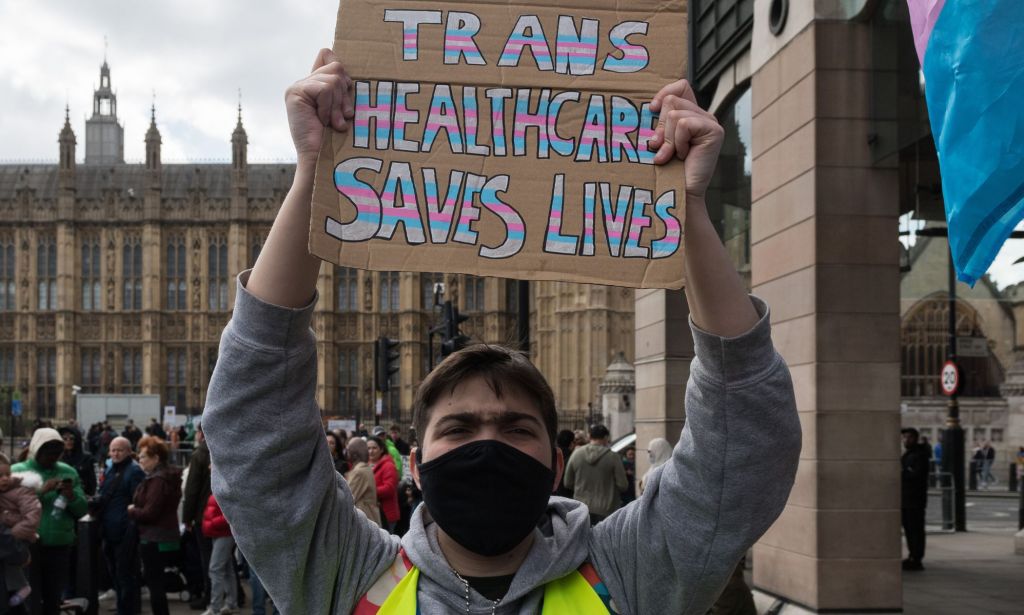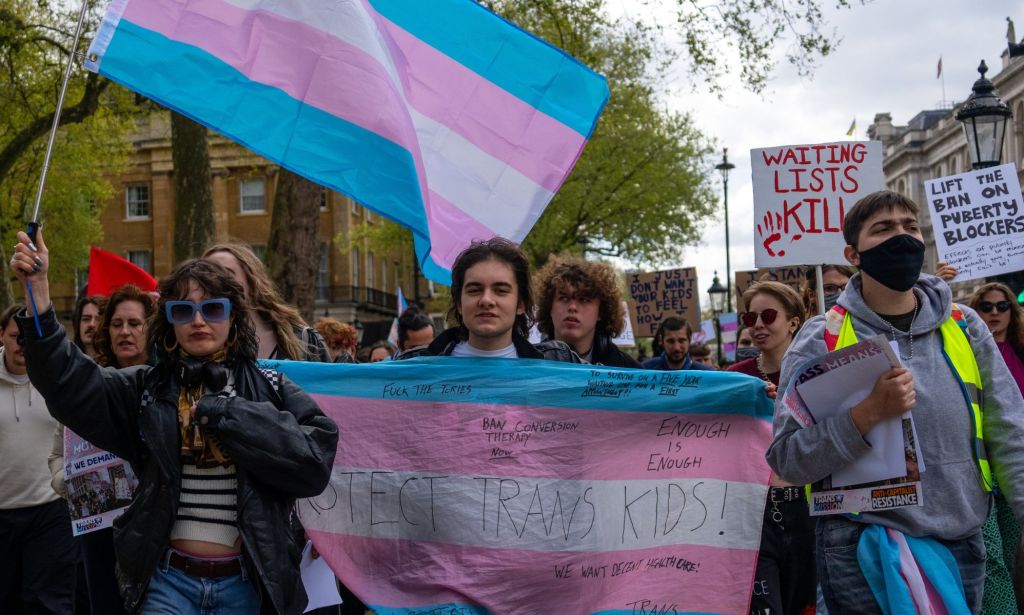Wes Streeting announces indefinite ban on puberty blockers for trans youth

Labour health secretary Wes Streeting has made the Conservatives’ puberty blocker ban indefinite. (Getty)
Puberty blockers for under 18s with gender dysphoria with be banned indefinitely in the UK because of an “unacceptable safety risk”, the Department of Health and Social Care, led by Wes Streeting, has announced.
A temporary ban on private prescriptions of puberty blockers was first put in place in May in England by the previous, Conservative-led government following the publication of the controversial Cass Review.
The ban was extended by Labour health secretary Wes Streeting after the party ousted the Tories from government, amid much criticism from the trans and wider LGBTQ+ community.
Following official advice by medical experts, the UK government said on Wednesday (11 December) that the existing emergency measures banning the sale and supply of puberty-suppressing hormones to trans youth will remain in place and not be reviewed until 2027.

In a statement published on the government website, Streeting said the indefinite ban was due to the need to “act with caution” in regards to “this vulnerable group of young people”.
He said: “Children’s healthcare must always be evidence-led. The independent expert Commission on Human Medicines found that the current prescribing and care pathway for gender dysphoria and incongruence presents an unacceptable safety risk for children and young people.
“Dr Cass’s review also raised safety concerns around the lack of evidence for these medical treatments . We need to act with caution and care when it comes to this vulnerable group of young people, and follow the expert advice.
“We are working with NHS England to open new gender identity services, so people can access holistic health and wellbeing support they need. We are setting up a clinical trial into the use of puberty blockers next year, to establish a clear evidence base for the use of this medicine.
The Cass Review – which was published in April, one month prior to the temporary ban being issued – urged “extreme caution” when prescribing puberty blockers to trans youth.
A full 400-page report into England’s model of care for trans under-18s, led by now House of Lord peer Dr Hilary Cass, made upwards of 32 recommendations to restructure the way in which transgender youngsters receive care and claimed there is “weak evidence” around the impacts puberty blockers have on gender dysphoria, whilst also deeming historical studies into its effects to be of “poor quality”.
Since then, various groups that work with trans youth including educational psychologists, clinicians and academics and members of the BMA have been critical of the review and its findings.
Commenting on the government’s decision to indefinitely ban puberty blockers, Cass said: “Puberty blockers are powerful drugs with unproven benefits and significant risks, and that is why I recommended that they should only be prescribed following a multi-disciplinary assessment and within a research protocol.
I support the government’s decision to continue restrictions on the dispensing of puberty blockers for gender dysphoria outside the NHS where these essential safeguards are not being provided.”
What are puberty blockers?

The medication, primarily used by those under the age of 18, delays unwanted elements of physical puberty. The NHS has described the effects as reversible, and there is no definitive evidence that they are harmful.
In September 2024, an independent study found they are generally safe to be used by transgender youngsters, and, despite what some people claim, the effects can be reversed.
The research, which was commissioned by the New South Wales government in Australia, also found that the benefits of the medicine to young transgender people outweigh any potential drawbacks.
The news of the indefinite UK ban comes mere hours after Northern Ireland’s government announced an indefinite ban, with deputy first minister Emma Little-Pengelly saying the decision was informed by “medical and scientific advice”.
How did this story make you feel?

